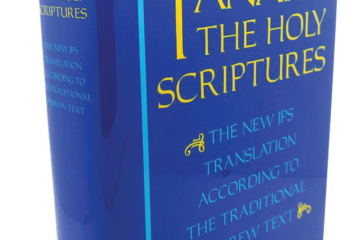Civil disagreement

By Rabbi Judy Chessin, Temple Beth Or & Chair, Dayton Synagogue Forum
The role of Jews in our nation’s civil rights movement is a source of pride for most in our community. We thrill to the iconic image of Abraham Joshua Heschel linking arms with Dr. Martin Luther King Jr. at the 1965 march on Selma, Ala. We relish Heschel’s moving reflection: “Even without words, our march was worship. I felt my legs were praying.”
Less known was the activism of another rabbi, quite different in tenor but arguably equal in passion and courage. As we Jews observe Martin Luther King Jr. Day, Jan. 21, we might then also reflect upon some unknown Jewish responses to the civil rights movement that rocked our people and our nation in the 1960s.
Jews overwhelmingly supported civil rights, empathizing with the plight of the enslaved and oppressed. Yet among these were also Jews who questioned some of the means of the civil rights activists. Their fear was of reprisals and antisemitic backlash in Southern Jewish communities. Additionally, some Jewish leaders felt discomfort with civil disobedience as a means of changing even unjust laws.
How then should we assess Rabbi Milton Grafman, who spent most of his career serving Temple Emanu-El in Birmingham, Ala.? Like many Southern rabbis, Grafman felt caught between the precarious realities of Jewish living in the Deep South and the ethical demands of Judaism and civil rights activism. These were trying times for the Jewish community of Birmingham. Fear of violent retribution from rabid segregationists and the KKK here tempered the Jewish activism of some.
In 1958, for example, members of the Beth El synagogue discovered 54 sticks of dynamite in a basement window-well outside their congregation. A faulty fuse saved the building, but shortly thereafter two men drove by Temple Emanu-El and shouted to the custodian, “You better get out of there, this one (synagogue) will be next!”
So, in the spring of 1963, when the Southern Christian Leadership Conference, under the direction of King, prepared for a civil rights demonstration in Birmingham, the Jewish community looked on with trepidation. The SCLC sought a public confrontation to ignite national media attention for their struggle. It was called Project C for confrontation and Birmingham fit the bill, especially with its racist commissioner of public safety, Bull Connor, best known for using fire hoses and police dogs to “subdue” peaceful protestors.
Moderates feared the inevitably violent confrontations and resented their beloved city being used for a national media campaign. Thus Grafman, along with seven other prominent city clergy, published A Call for Unity in the newspaper on April 12, 1963. The letter described the planned demonstration by outsiders as ill-timed before giving the newly-elected moderate Birmingham city officials time to work within the law and pass desegregation.
These clergy urged gradual progress through legal means to further black civil rights while also maintaining the harmony of the city they loved.
The demonstration, of course, went on as planned and King was jailed, whereupon he penned his famous Letter from Birmingham Jail. Here was King’s opportunity not only to address the eight clergy but also to reach more widely the moderate supporters of civil rights who nonetheless disagreed with the unpredictable results of his staging protests and demonstrations.
King’s letter, scribbled on the margins of a newspaper, was smuggled out of the jail and later published in newspapers nationwide. Here King chided the eight clergy, expressing disappointment at the inaction of those who criticized civil disobedience, accusing them of upholding corrupt regimes. King soberingly wrote: “I have almost reached the regrettable conclusion that the Negro’s great stumbling block in his stride toward freedom is not the…Ku Klux Klanner, but the white moderate, who is more devoted to ‘order’ than to justice, who prefers negative peace which is the absence of tension to a positive peace which is the presence of justice; who constantly says, ‘I agree with you in the goal you seek, but I cannot agree with your methods of direct action’; who paternalistically believes he can set the timetable for another man’s freedom; who lives by a mythical concept of time and who constantly advises the Negro to wait for a ‘more convenient season.’”
Grafman chafed under the letter’s critique. He felt King had not accurately reflected the clergymen’s sentiments. Meanwhile, northern Jews began a vitriolic attack against Grafman, accusing him of bigotry, racism and misreading the tenets of Judaism.
In his 1963 Rosh Hashanah sermon, just days after the tragic bombing of the 16th St. Baptist Church which killed four young girls, Grafman appeared before his congregation in shock. He confessed to having received so much criticism from around the country and from within his own congregation that he was dismayed.
After all, had he not sought only the welfare of the Jews and the citizens of Birmingham? Had he not demanded that his congregation work with the larger community to bring about racial justice and an end to violence in their city?
Grafman continued to advocate for civil rights throughout the rest of his career. He worked for integration in Birmingham’s public parks, golf courses and swimming pools, even as just before Kaddish on that earlier Rosh Hashanah, he had read the names of the four girls killed in the 16th Street Baptist Church bombing. He supported the hiring of black FBI agents in Birmingham, sat on integration committees, and offered to share the synagogue with a newly formed break-away church that split over integration.
Throughout his subsequent career, Grafman continued to receive threatening letters and phone calls by staunch segregationists. Ironically, he likewise fielded critiques of being a racist from fellow Jews and civil rights activists nationwide. Before his death he remarked: “(King’s) …letter is studied in English courses and sociology courses, and I get at least one letter a semester asking me if I’m still a bigot (New York Times Obituary, May 31, 1995).”
Sadly, Grafman, himself a champion of civil rights, died disappointed that he had been misunderstood and mislabeled by history, that his legacy had been overshadowed by a famous letter from a Birmingham jail.
What are we to learn from this story? Perhaps at least to consider tempering our opinions of those with whom we disagree? It is nearly a half-a-century since those dramatic times and our nation is still profoundly divided over race, class, economic status, ethnicity, gender, religion and politics. Our 24-hour media coverage on virtually every controversial issue seems more polarizing than ever before, certainly far more so than 50 years ago.
Perhaps we can use this Martin Luther King Jr. Day to recall that, even if we disagree with them, there are good people on every side of most issues who likewise wish to actualize the values Judaism holds most dear. Indeed, as King himself put it, “We must live together as brothers, or perish together as fools.”





